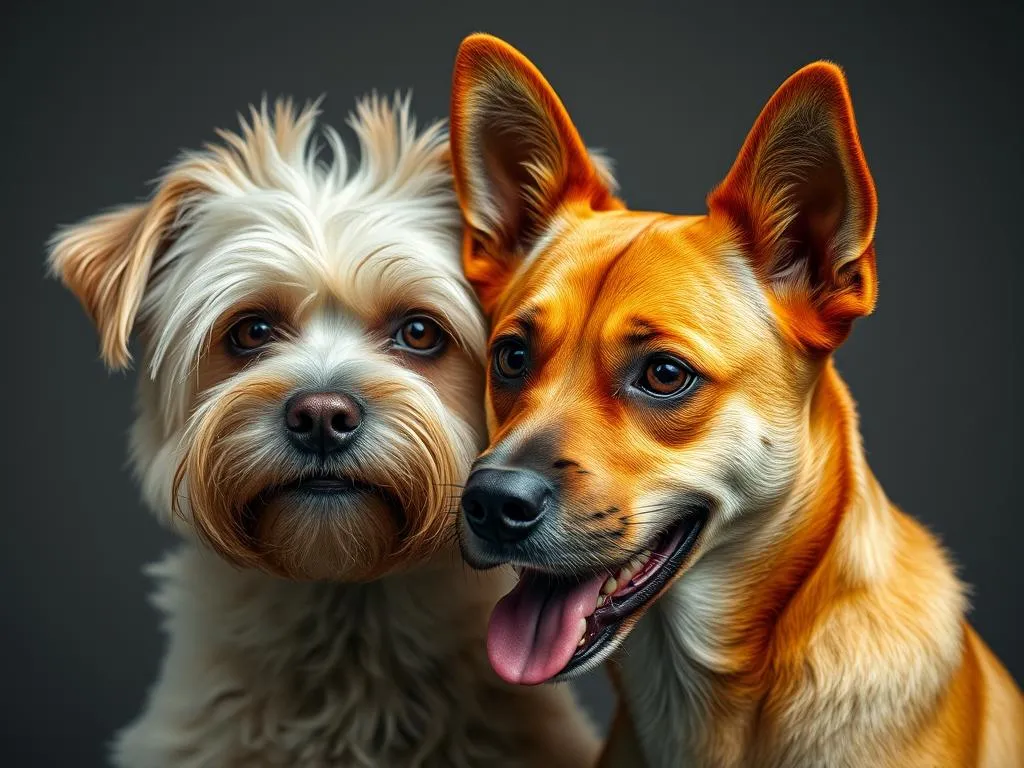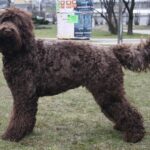
Introduction
When we think of unique dog breeds, we often imagine those that stand out from the traditional breeds we commonly see. A breed is considered unique for various reasons: distinctive physical traits, unusual behaviors, or a rich historical background that sets them apart. As dog enthusiasts increasingly seek diverse companions, the interest in these unique breeds is on the rise.
This article aims to provide an in-depth exploration of a selection of unique dog breeds, discussing their characteristics, care requirements, and lifestyle compatibility. Whether you are a potential dog owner, a breed researcher, or simply a dog lover, this guide will illuminate some of the most fascinating canines you might not have encountered before.
Understanding Dog Breeds
What is a Dog Breed?
A dog breed refers to a specific group of domestic dogs that share particular characteristics, traits, and behaviors. These similarities can manifest in a variety of ways, including size, coat type, color, and temperament.
How Breeds are Developed
The development of dog breeds has been a long journey, rooted in selective breeding practices that date back thousands of years. Breeders have historically chosen dogs with specific traits to reproduce, leading to the establishment of distinct breeds. Geographical and cultural influences also play significant roles in this process; for instance, breeds that developed in colder climates may have thicker coats, while those in warmer regions may be bred for agility and endurance.
Importance of Breed Characteristics
Understanding breed characteristics is essential for prospective dog owners. Traits such as temperament, size, coat type, and health considerations vary widely among breeds, impacting how well a dog will fit into your lifestyle. Unique breeds often possess specific traits that make them suitable for certain environments, families, or activities.
Characteristics of Unique Dog Breeds
Physical Traits
Unique dog breeds can exhibit a variety of intriguing physical traits. For instance, some breeds may have odd or distinctive coat colors, textures, or even unusual body structures. These traits contribute to their uniqueness and often draw the attention of dog lovers.
Temperament and Behavior
The temperament of unique dog breeds can range from playful and energetic to calm and affectionate. Understanding these personality traits is essential for matching a dog with the right owner. Many unique breeds are known for their loyalty, intelligence, and strong bonds with their families.
Health Considerations
As with any dog breed, unique breeds may be prone to specific health issues. For instance, some breeds might have genetic predispositions to certain ailments, while others may require special care due to their unique physical features. Awareness of these health considerations is crucial for providing a long, healthy life for your dog.
Care Requirements
Unique dog breeds often have specific grooming, exercise, and nutritional needs. Some may require regular grooming due to their coat type, while others may need more exercise to keep them mentally and physically stimulated. Understanding these care requirements will help ensure a happy and healthy relationship with your unique canine companion.
Top Unique Dog Breeds
Basenji
Originating from Central Africa, the Basenji is often referred to as the “barkless dog” because of its unique vocalization that sounds more like a yodel. This breed is known for its intelligence, independence, and alertness. Basenjis have a short coat that requires minimal grooming, making them relatively low-maintenance. However, they can be challenging to train due to their stubborn nature and need for mental stimulation.
Xoloitzcuintli (Mexican Hairless Dog)
The Xoloitzcuintli, or Mexican Hairless Dog, boasts a rich history dating back over 3,000 years. Known for its hairless appearance, this breed is also recognized for its health benefits, such as reduced allergies and fewer skin issues. The Xolo is affectionate and protective, making it a great family companion. While they require minimal grooming, they do need protection from the sun due to their lack of fur.
Norwegian Lundehund
The Norwegian Lundehund is a remarkable breed known for its unique physical traits, including extra toes that aid in climbing rocky terrain. Originally bred for hunting puffins, this breed is agile and intelligent. However, they can be prone to certain health issues, including gastrointestinal problems. Regular exercise and a balanced diet are vital for maintaining their health.
Bedlington Terrier
With its striking lamb-like appearance, the Bedlington Terrier is both unique and charming. This breed is known for its playful and affectionate nature, making it an excellent family pet. Bedlington Terriers require regular grooming due to their curly coat, which can mat easily. They are also energetic and require daily exercise to stay happy and healthy.
Kishu Ken
Originating from Japan, the Kishu Ken is a hunting dog known for its keen instincts and agility. This breed is independent and reserved, making it a perfect companion for experienced dog owners. Kishu Kens have a short coat that is easy to maintain and require regular exercise to satisfy their energy levels. Their loyalty and protective nature make them excellent family dogs.
Lagotto Romagnolo
The Lagotto Romagnolo is a versatile breed known for its outstanding truffle-hunting abilities. This breed is intelligent and eager to please, making it relatively easy to train. Their curly coat requires regular grooming to prevent matting. Lagottos are affectionate and make great family pets, thriving in environments where they can engage in various activities.
Thai Ridgeback
The Thai Ridgeback is unique for its distinctive ridge of hair along its back, which sets it apart from other breeds. This breed is known for its strength, loyalty, and protective nature. Thai Ridgebacks generally have a short coat that requires minimal grooming, but they are energetic and need regular exercise. They can be reserved around strangers, making early socialization essential.
Lifestyle Considerations for Unique Dog Breeds
Living Environment
When considering a unique dog breed, it’s essential to evaluate your living environment. Some breeds adapt better to urban settings, while others thrive in rural areas with ample space to roam. For instance, breeds like the Basenji and Thai Ridgeback may enjoy a more active lifestyle in larger spaces, while Xolos can adapt well to city living.
Family Compatibility
Not all dog breeds are suitable for every family. Some unique breeds, like the Bedlington Terrier and Lagotto Romagnolo, are great for families with children due to their playful and affectionate nature. In contrast, breeds like the Kishu Ken may be more suitable for singles or families with older children who understand dog behavior.
Activity Level and Exercise Needs
Dog owners should carefully match their energy levels with those of their chosen breed. Unique breeds, such as the Norwegian Lundehund and Lagotto Romagnolo, require regular exercise to thrive. Ensuring your dog receives adequate physical activity and mental stimulation is vital for a well-rounded and happy pet.
Training Unique Dog Breeds
General Training Tips
Training unique dog breeds can vary significantly, depending on their personality and temperament. Early socialization is crucial for all breeds, as it helps them develop into well-adjusted adults. Positive reinforcement techniques are often the most effective, encouraging desirable behavior and building a strong bond between you and your dog.
Breed-Specific Training Techniques
For certain breeds, specific training techniques may yield better results. For example, the Basenji’s independent nature may require patience and consistency, while the Kishu Ken’s intelligence can be harnessed through engaging activities and challenges. Tailoring your training approach to the individual dog’s characteristics will enhance the experience for both of you.
Where to Find Unique Dog Breeds
Reputable Breeders
If you decide to purchase a unique dog breed, it’s essential to find a reputable breeder. Look for breeders who prioritize the health and welfare of their dogs, provide proper documentation, and are willing to answer your questions. Visiting the breeder’s facility and meeting the puppies’ parents can also give you insight into their breeding practices.
Rescue Organizations
There are many rescue organizations dedicated to unique dog breeds. These organizations often have a wealth of knowledge about the specific needs of each breed and can help match you with a dog that fits your lifestyle. Adopting from a rescue not only provides a loving home for a dog in need but also supports the efforts of those working to promote responsible pet ownership.
Adoption vs. Buying
When considering adding a unique breed to your family, you may weigh the pros and cons of adoption versus buying from a breeder. Adoption can be a fulfilling option, often providing a loving home to a dog in need. On the other hand, purchasing from a breeder allows you to learn more about the dog’s lineage and health history. Ultimately, the decision should align with your personal values and circumstances.
Conclusion
Owning a unique dog breed can bring immense joy and fulfillment. These breeds often possess distinctive characteristics that make them exceptional companions. Understanding the needs and traits associated with each breed is vital for ensuring a harmonious relationship. If you’re considering adding a furry friend to your home, a unique breed might just be the perfect fit for your lifestyle.
FAQs
Are unique dog breeds harder to train?
Training difficulty varies by breed rather than uniqueness. While some unique breeds may be more independent or stubborn, many are highly trainable with positive reinforcement techniques and early socialization.
What should I know before adopting a unique breed?
Research the specific breed’s characteristics, care requirements, and potential health issues. Understanding their temperament and needs will help you determine if they’re a good fit for your lifestyle and family dynamics.









